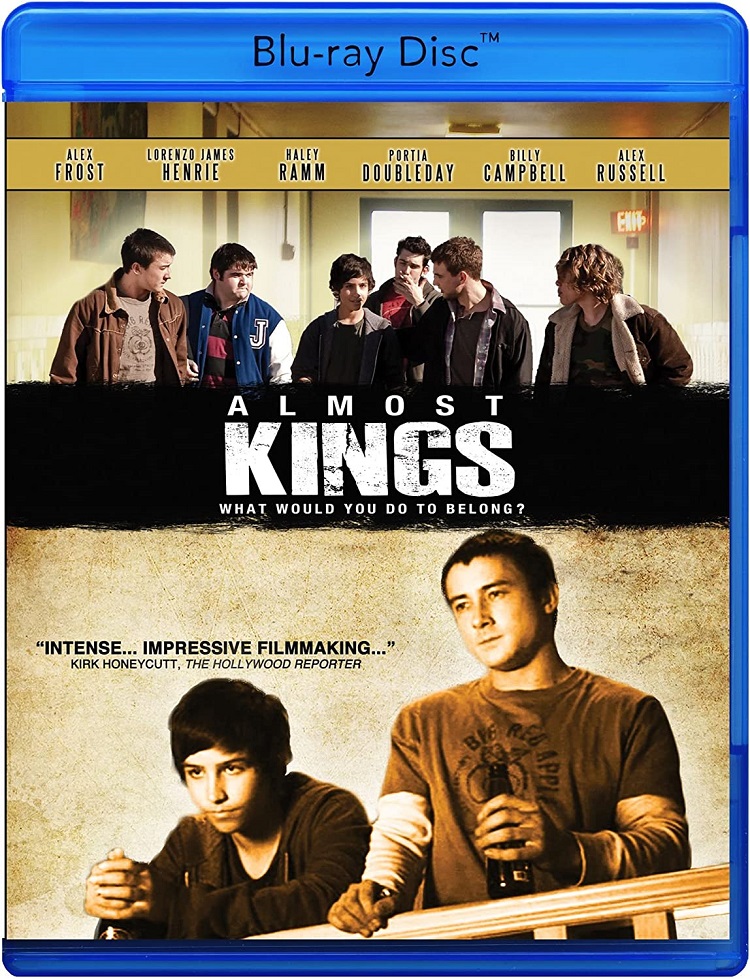
Written by Ben Platko
Almost Kings, in the press release, is described as “an edgy, coming of age drama centered around a young man (Ted) following in his destructive brother’s (Truck) footsteps. Almost Kings asks the question that echoes in every school in America: how far will you go to be accepted?”
This sounds like my kind of movie. I happen to like coming of age dramas – the good ones really stand out against the crowd. Unfortunately, like so many high schoolers, this film just kind of blends in. The greatest shortcoming was without doubt, the writing. Forced lines left and right, plot points that leap out of nowhere, and characters flatter than the paper they were written on. There’s a good story somewhere in the script, but it was steeped with mediocrity.
Almost Kings is a smorgasbord of high school [movie] cliches thrown at the audience. Right off the bat we are introduced to two brothers from the wrong side of the tracks, and their all-but-absent jerk of a father who only cares about two things: when his next meal is, and beer. This sounds great on paper, but it did not translate well to the screen at all. Seriously, we only see the father a couple times, and he is completely static – he’s a caricature, a stereotype, and when everything is said and done, he’s a terrible, poorly written character.
Now that my rant about the father is over, let’s look at our main characters: the brothers Truck and Ted. Ted is billed as a high school student trying to fit in. The problem, though, is that he is every high school student trying to fit in; he is not his own character – he’s too generic. In (what I think was) an attempt to relate to an entire age group, Ted’s character got watered down. Truck, on the other hand, is an actual character. He is complex, and we get to watch him as he struggles to balance his own competing personality traits. Truck is extremely protective of Ted, and as a result, Ted sees Truck as a noble, honorable, white knight figure. As Ted spends more time with “The Kings” Truck’s veneer begins to fade and trust issues brew between the brothers. While plot points are being thrown at us, Truck tries to simultaneously maintain his image among his friends, and preserve his relationship with Ted. Unfortunately, even Truck’s character is plagued by fits of hurried writing and questionable direction.
With everything said and done, what Almost Kings lacked was subtlety. It spoon-fed its message to the audience, and in doing so it lost a lot of its potential impact. Compare it to Boys Don’t Cry, which was so reserved with its message that it hit the audience in the gut with a brick, or Paranoid Park, which was, frankly, a bit chilling. Those two stood out because the writers held back and let us connect to well developed characters before letting us discover their messages on our own. “Show – don’t tell” was my high school English teacher’s mantra, and I think Almost Kings does a little too much telling.
Check back soon to read my interview with actor Alex Frost, who plays Truck.